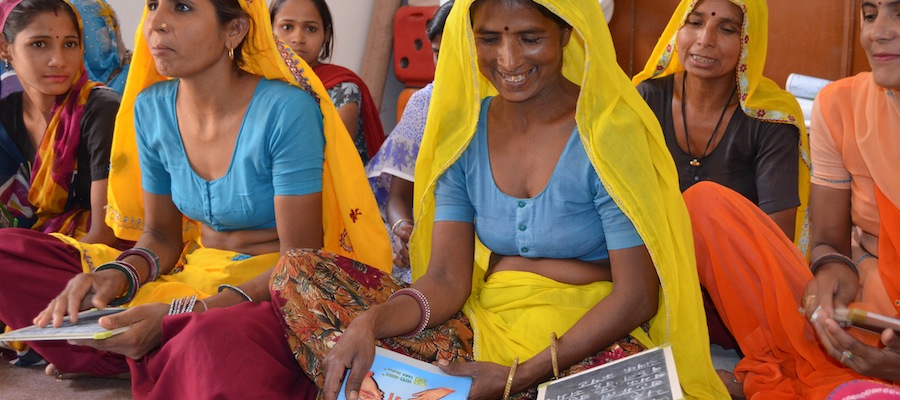
This is a guest post by Anh Ton of the The Asian Philanthropy Forum that originally appeared on their site, featuring READ Global’s work to empower women globally.
A lot of people like to say they find refuge among books. When they say this, they usually mean it figuratively: books give them comfort and books give them peace of mind. For women at READ Centers in Nepal, India, and Bhutan, solace among books is literal.
Social norms continue to deprive many women and girls in these three South Asian countries of their right to an education. As a result, 40% of women in Bhutan, 34% in Nepal, and 52% of the women in India are illiterate. Unable to read, most of these women face a life of hard labor on the fields, and their existence is confined solely to the domestic sphere. No matter how you look at it, such conditions are unsetting in the 21st century.
But this is where READ Centers come into the picture. Co-built by the nonprofit READ Global and the local communities themselves, READ Centers act as a community library and resource centers where women can go to access information and take different kinds of classes, including literacy and livelihood trainings. Because they’re built in close partnership with the local communities—locals have to invest at least 15% of the funding before a Center gets started and each Center has a trained local management committee—there is a strong sense of ownership over the Centers. Women and girls can come and go to the Centers as the please, without needing to seek permission from their husbands or parents.
“Especially in parts of India and Nepal, women are not able to leave their homes without permission from their husbands, unless it’s for agricultural work or childcare. But once they have that of hook of being able to go the library to learn an income generating skill, they’re able to start supporting their family, and the library gains more respect and trust,” explains Sara Litke, READ Global’s Marketing and Communications Manager. “The women are allowed to leave more frequently and allowed more social and physical mobility without having to ask their husbands. 75% of women in Nepal and 77% in India in the communities where we work are now able to travel outside of their home as a result of being near a READ Center. It’s extraordinary. ”
In that sense, READ Centers are more than libraries; they’re they’re platforms for empowerment.
“I think people are getting now that the library is really this safe, unique place in a community, especially for women,” says READ Global Executive Director Tina Sciabica. “Just having a place where they can go, where they have the opportunity to take literacy classes, to gather with other women, to access health information—it’s bringing about so much social change. From our monitoring and evaluation efforts, we found that two-thirds of women with READ Centers in their communities have increased decision making power in their home.”
In a focus group discussion, one woman in a community with a READ Center said, “Before joining the Center I had a belief that women were bound to be in the house as housewives. But [now] I realize that… women are also capable of doing everything.”
The change goes beyond the home too. As more women gain an education and renewed perspective from the programs and services at READ Centers, they pay it forward. They start telling their friends about READ Centers, they go over to neighboring villages to share the things they’ve learned, and they start women’s groups to help others like them.
“It’s something that we like to call the READ Effect,” says Tina.
In other words, it’s a snowball effect of exponential, positive transformation across generations.
By facilitating the market connections for rural entrepreneurs, READ has the opportunity to help villagers participate in formal economies, and increase wealth for their families and their communities.
About the guest author:

Anh Ton, Asian Philanthropy Forum
Anh is a writer for the Asian Philanthropy Forum, a global network dedicated to sharing knowledge and improving the quality of life and sustainability of Asian communities. She is also the communications and development coordinator at Vietnam Health, Education & Literature Projects (VNHELP), a nonprofit dedicated to transforming the lives of Vietnam’s poor.



